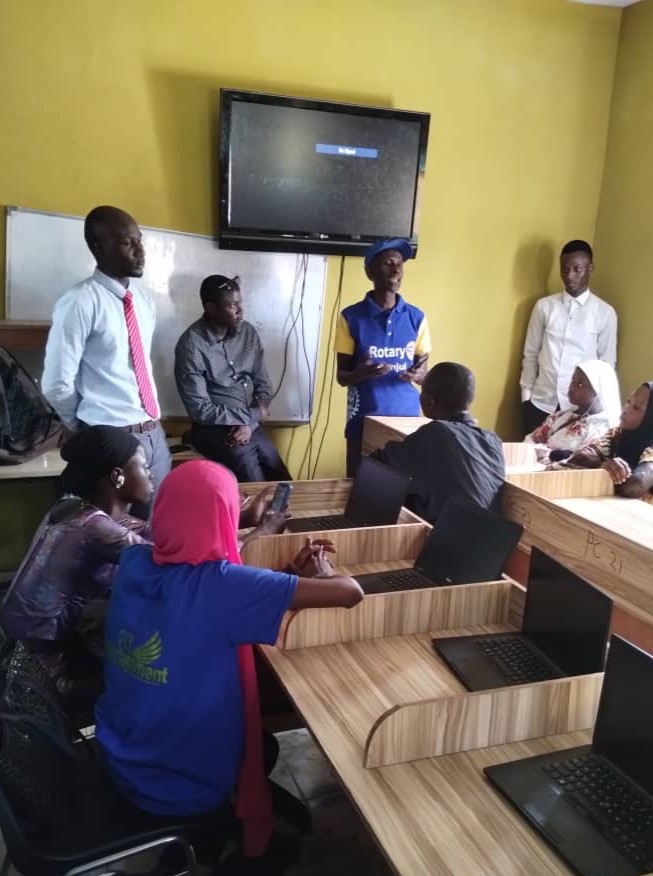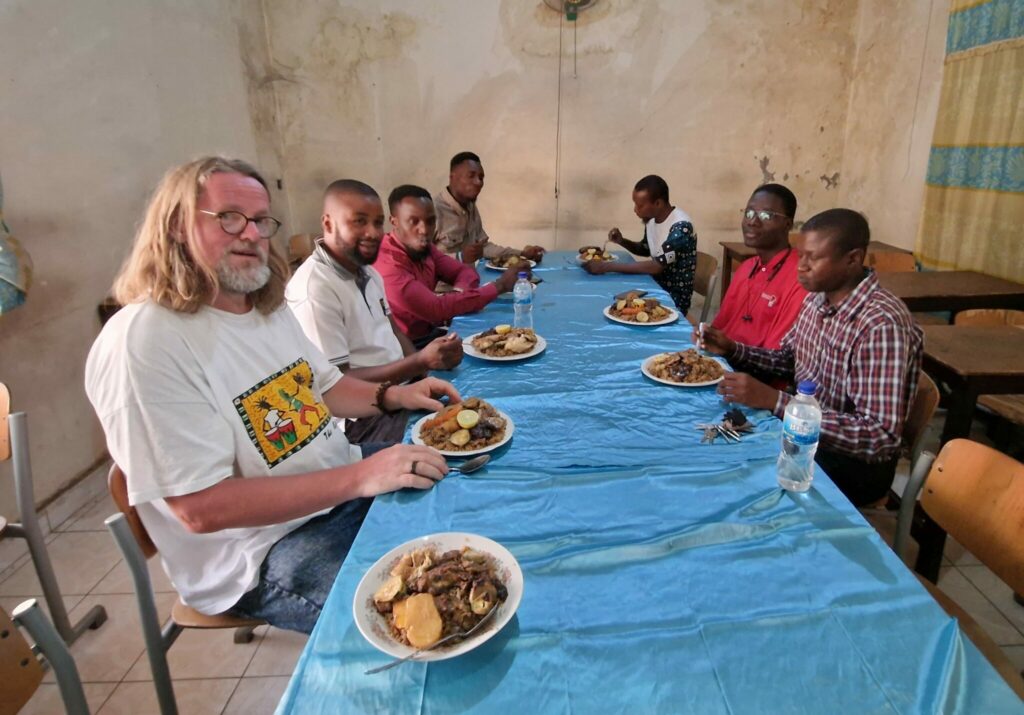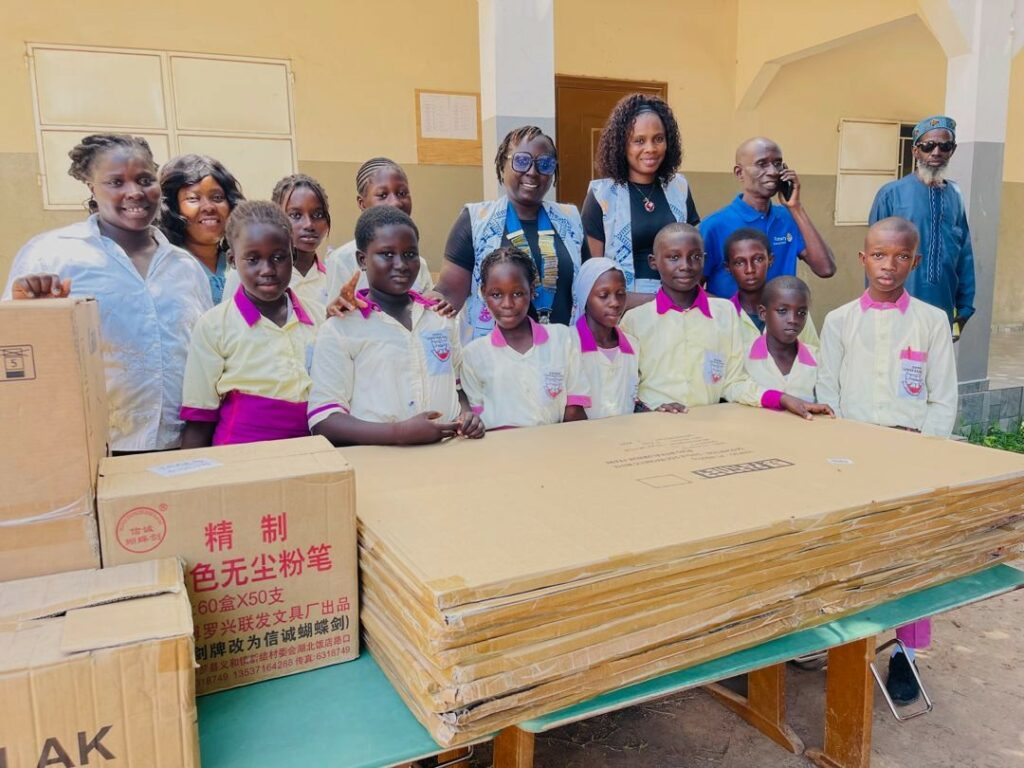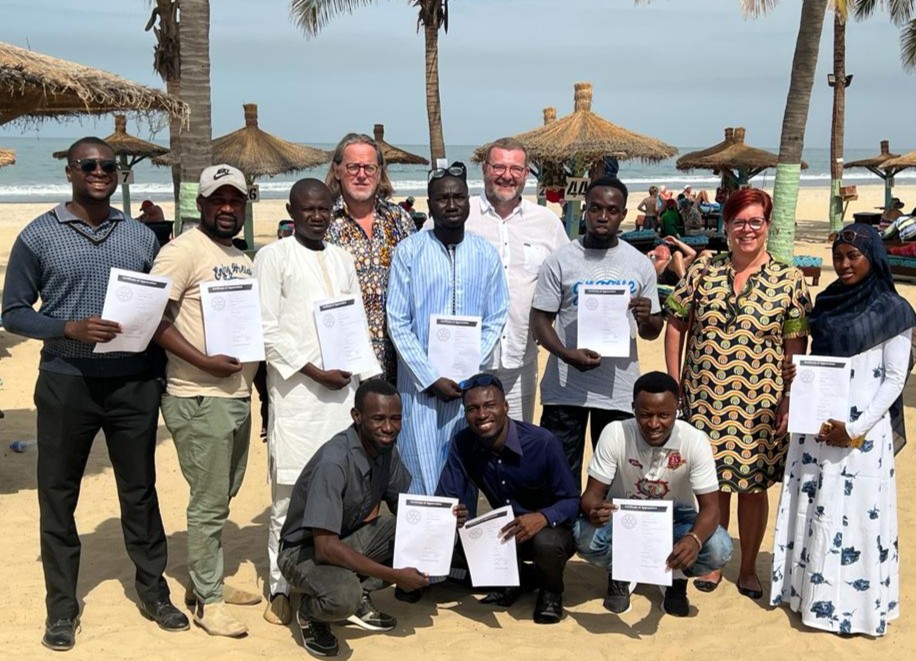A significant milestone was reached in The Gambia in January 2024, when a two-year teacher training programme implemented in cooperation between the Rotary clubs of Loviisa and Banjul culminated in a graduation ceremony. The Rotary Global Grant project, which was also supported by the Rotary clubs of Espoo-Meri, Hollola-Salpakangas and Sipoo-Pornainen and the Rotary World Fund, has proven to be a significant step in the development of Gambian education.
Versatile training programme
Fifteen dedicated teachers completed a program that innovatively combined IT knowledge and pedagogical skills. The journey was not easy – two years include job changes, illnesses and challenges arising from the operating environment – but the group’s tenacity and determination proved their strong commitment to the development of education.
“Teaching in The Gambia requires creativity and adaptability,” says Finnish trainer Jukka Ylipiha. “Teachers need to have plans B, C, and D to deal with unpredictable circumstances, such as intermittent electricity and internet connections.” The training programme placed particular emphasis on effective communication and diverse teaching methods.

Technology to support learning
During the programme, the Google Classroom material bank was developed based on the Finnish model of basic education. The teachers familiarised themselves with the possibilities of social media and artificial intelligence in teaching and received training in virtual servers, programming and web design.
Sustainable solutions
The development of infrastructure played a key role. Future Starts Now The Gambia Institute of Technology (FSNG) and EMMA School were supplied with solar panels and laptops to ensure the continuity of teaching even during power outages. “These devices are a game-changer,” says Lamin Keita, principal of FSNG School. “They enable the continuity of teaching despite power outages.”

Cultural exchange and future prospects
The project was not limited to technical training. The Finnish instructors also shared Finnish traditions with their local colleagues, and in return, the Gambian teachers introduced the Finns to their own culture. These encounters deepened cooperation and built a sustainable foundation for future development projects.
The project’s impact extends beyond individual classrooms. FSNG School has already started a new project funded by the Ministry for Foreign Affairs of Finland to develop occupational safety training. This shows how the Global Grant project has laid the groundwork for new development projects.
The Loviisa Rotary Club’s project was carried out with the Rotary Foundation’s Global Grants, which aim to achieve sustainable impacts and permanent changes. To prepare for projects, Rotary club members locate a community in need, apply for a grant from the Rotary Foundation, and launch the project. The Rotary Foundation will oversee the use of the Global Grant throughout the project. As the project progresses, the funds raised as planned will be directed to the site through the local Rotary district.
Annu Jokela-Ylipiha
Loviisa Rotary Club

Equipment supplied:
48 laptops
1 copier
2 x 65-inch TVs
4 solar panels with electrical systems
12 whiteboards with whiteboard pens, crayons, glue sticks and markers
1 Air Conditioner
Education:
Master Trainer course in Pedagogical tools: 6 todistusta
Master Trainer course in IT Basic: 9 todistusta
Project team
- Janne Lepola, Project Manager
- Jukka Ylipiha, IT teacher
- Annu Jokela-Ylipiha, pedagogical themes and communication
Partners:
- Principal Rotary Clubs: Loviisa Rotary Club (District 1420) and Banjul Rotary Club (District 9101)
- Rotary clubs that supported the project: Espoo-Meri, Hollola-Salpakangas and Sipoo-Pornainen
- Also funded by the Rotary Foundation
The original news has been published in the Rotary Norden magazine.
